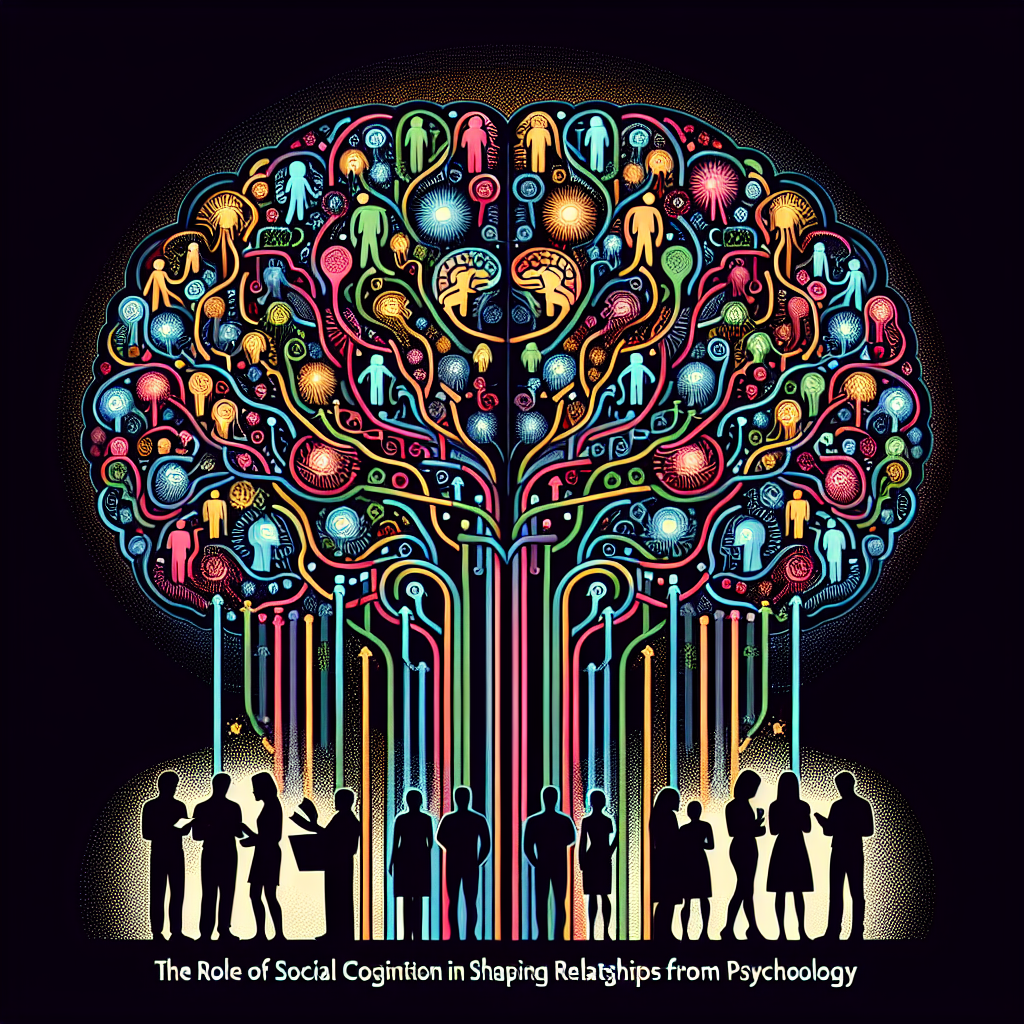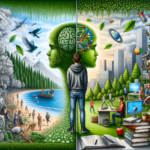
Introduction
In an era where our relationships increasingly dictate the quality of our personal and professional lives, understanding the underlying psychological processes can be transformative. The role of social cognition in shaping relationships is paramount; it influences how we perceive others, anticipate their behaviors, and ultimately, how we interact. This article explores the profound implications of social cognition, offering insights that not only illuminate your understanding but also empower your connections.
Understanding Social Cognition
What is Social Cognition?
Social cognition refers to the mental processes that enable us to understand, interpret, and respond to social situations. This field examines how we perceive ourselves and others, form impressions, and make judgments based on social cues. At its core, social cognition helps explain why we interact the way we do with those around us.
Key Components of Social Cognition
- Schemas: Mental structures that organize knowledge and guide processing. They serve as frameworks for understanding the world.
- Attributions: The explanations we make about the causes of others’ behaviors. Attribution theory explores whether we attribute behavior to internal dispositions (e.g., personality) or external situations.
- Social Perception: The process through which we form impressions of other people, influenced by nonverbal cues, context, and our own biases.
The Role of Social Cognition in Relationships
Shaping First Impressions
First impressions are lasting and impactful. Social cognition plays a crucial role in how we evaluate others upon initial meetings. Studies show that traits such as warmth and competence heavily influence our perceptions. A significant example is the "warmth-competence" model, which suggests that people are judged primarily on these two dimensions.
Case Study: The Role of Warmth in Leadership Perception
A study by Antonakis et al. (2012) demonstrated that leaders who were perceived as warm were more likely to be followed. This finding highlights how quickly social cognition shapes our perceptions, informing crucial dynamics in relationships.
Maintaining Relationships
Once established, relationships evolve based on cognitive interpretations. Misunderstandings often arise from differing cognitive frames. For example, if one partner attributes a negative action to personal failings while the other sees it as a situational factor, conflict can ensue.
Table 1: Attribution Styles and Relationship Outcomes
| Attribution Style | Potential Relationship Outcome |
|---|---|
| Internal Attribution | Increased conflict; feelings of blame |
| External Attribution | Reduced conflict; promotes understanding |
| Mixed Attribution | Uncertainty; requires communication |
Conflict Resolution
Conflict is a natural part of relationships, but how we approach it often relies on our social cognition. Models such as the Dual Process Model suggest that both intuitive and analytical thought processes can influence conflict resolution strategies.
Case Study: The Role of Empathy in Conflict Resolution
A study conducted by Davis (1983) found that individuals high in empathic concern were more likely to resolve conflicts positively. This underscores that social cognition plays a critical role in understanding and empathizing with others, leading to healthier relational outcomes.
The Impact of Social Media
In today’s digital age, social cognition faces new challenges. Online interactions are often riddled with ambiguity, leading to misinterpretations. This evolution in communication necessitates an understanding of how cognitive biases affect our online relationships.
Social Media and Identity Perception
Many people curate their online personas, leading others to form perceptions based on incomplete information. Research indicates that this can create significant gaps between one’s real-life and online self-perceptions.
Table 2: Perception vs. Reality in Social Media Use
| Aspect | Online Perception | Real-life Reality |
|---|---|---|
| Self-Presentation | Often idealized | Complex and nuanced |
| Feedback | Can be skewed by likes | Direct and varied |
| Conflict Communication | Ambiguous and indirect | Direct and open |
The Role of Social Cognition in Managing Online Relationships
Navigating relationships on social platforms requires an acute awareness of cognitive biases. It’s essential to approach online interactions with empathy, understanding that others may interpret posts differently than intended.
Enhancing Interpersonal Relationships through Social Cognition
Developing Emotional Intelligence
Emotional intelligence (EI) is closely linked to social cognition. By enhancing EI, one can improve relationship dynamics by better understanding and responding to the emotions of others.
Case Study: Emotional Intelligence Training
A meta-analysis by Joseph and Newman (2010) found that EI training leads to improved relational outcomes in various contexts. This supports the narrative that enhancing cognitive understanding fosters healthier interpersonal dynamics.
Practicing Active Listening
Active listening is a critical skill rooted in social cognition. By fully engaging in conversations and reflecting on what others communicate, we can build stronger relationships and alleviate misunderstandings.
Cultivating Empathy and Understanding
Empathetic engagement can transform relationships. By incorporating perspective-taking practices, individuals can better appreciate differing viewpoints. This cognitive shift can lead to more harmonious interactions.
Conclusion
The role of social cognition in shaping relationships is both profound and transformative. By understanding the cognitive processes behind our perceptions and interactions, we can foster healthier, more fulfilling relationships. The insights from psychology emphasize the importance of empathy, communication, and understanding in navigating the complex landscape of human interactions.
Actionable Insights
- Reflect on Your Attributions: Consider how you explain others’ behaviors. Shift from internal to external attributions when appropriate to foster understanding.
- Enhance Your Emotional Intelligence: Engage in training or practices that elevate your understanding of emotions.
- Practice Active Listening: Make it a habit to fully engage with others, showing them that you value their perspectives.
FAQs
1. What is social cognition?
Social cognition refers to the mental processes that help us understand and interact with others in social contexts, influencing our relationships.
2. How do first impressions impact relationships?
First impressions are crucial as they shape our initial evaluations of others. Positive first impressions can lead to trust and openness, while negative ones can create barriers.
3. Can social cognition be improved?
Yes, practices like emotional intelligence training and empathy exercises can enhance social cognition, leading to better relational outcomes.
4. What role does social media play in social cognition?
Social media can complicate social cognition by creating gaps between online perceptions and real-life identities, leading to misunderstandings.
5. How do cognitive biases affect relationships?
Cognitive biases can lead to misinterpretations and conflicts in relationships, altering how individuals perceive and interact with one another.
By exploring the role of social cognition in shaping relationships, we gain valuable insights that can enrich our personal and professional interactions, ultimately leading to deeper connections and enhanced emotional well-being.

















